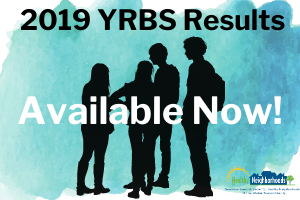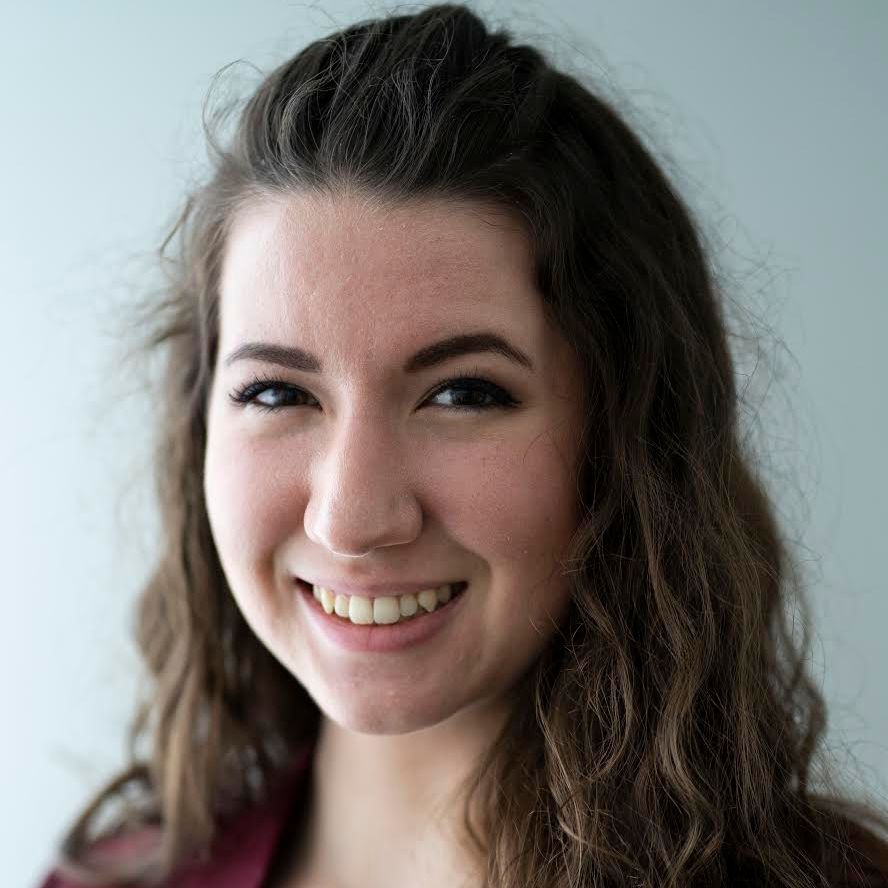PRCHN Connection
Fall 2020
| |
Director's Note
The PRCHN team, like much of CWRU and perhaps you, continues to work remotely in hopes of minimizing COVID-19. Despite this, I cannot help but be continuously impressed by the flexibility and ingenuity of the PRCHN staff, faculty, and students. They have risen to the occasion and continue to deliver on our mission. I'd like to briefly mention three Center activities that we've been working on during this time.
We have relaunched our Seminar Series for 2020-2021-and we are virtual for the year! I was honored to personally kick us off this month sharing the impact of Cleveland's Tobacco21 policy on high school smoking. To learn more about our stellar slate of speakers and how to register, read more below and head to our website.
Speaking of website, after several months of effort, we are launching our new website! I want to personally thank Briana McIntosh and Suzanne Johnson for the amazing effort. We've freshened up our look but kept all the great resources and information our partners have to come to rely on. We hope you'll visit soon and let us know what you think.
Finally, our team began working on a new Center strategic plan earlier this year. We completed our internal work this spring, and we have been honored to have over 20 of our external colleagues and partners also participate in our process. We look forward to sharing our final plan with all of you. As our team has moved through this process, we've recognized that the events of the last six months have reaffirmed and deepened our commitment, values, and the approach we take in our work.
Despite all the uncertainty and tension that surrounds us, please be sure to take the time to take care of yourselves and to check in on your family, friends, and neighbors. Wear a mask and respect social distancing guidelines - and without a doubt, take a moment exercise your rights and duties as a citizen - complete your 2020 census form and register to vote!
Stay safe and healthy. 
Erika S. Trapl, PhD
Director, Prevention Research Center for Healthy Neighborhoods
Associate Director, Community Outreach and Engagement, Case Comprehensive Cancer Center
Associate Professor, Dept. of Population & Quantitative Health Sciences
|
|
Community spread of the COVID virus, its consequences, and links to disparities have left public health and health care systems scrambling for ways to identify and understand the experiences of the most vulnerable populations. A widely employed approach in public health is to use neighborhood-level social vulnerability indices as markers of risk. However, these indices do not capture dynamic changes and they lack local perspectives that give insight to perceptions, behaviors and outcomes. They also do not typically include factors that are now known to be associated with COVID, such as being an essential worker, or living in dense or congregate housin
An investigative team, led by Dr. Elaine Borawski (PRCHN, Dept of Population and Quantitative Health Sciences [PQHS]) and Dr. Janet McGrath (Dept of Anthropology) recently received funding as part of the COVID Taskforce Pilot Research Program to explore the COVID experience in Cleveland neighborhoods with the goal of improving existing measures of neighborhood social vulnerability leading to better inform public health messaging and intervention efforts. Drs. Borawski and McGrath are joined by co-investigators Drs. Andrew Curtis and Nora Nock (PQHS), Drs. Marsha Michie and Aaron Goldenberg (Dept of Bioethics), and Dr. Be njamin Gorham (Freedman Center for Digital Scholarship). The project will rely heavily on community partners of the PRCHN to serve on the study's advisory, help finalize data collection tools and to recruit study participants, ensuring strong representation across the 8 neighborhoods.
The project will explore resident's perspectives in 8 neighborhoods in Greater Cleveland -- 6 in Cleveland (3 in east and 3 in west) and 2 in suburbs (Euclid and Parma) chosen for having one or more COVID-specific vulnerabilities (e.g., high proportion of population with underlying health conditions, dense congregate housing, high proportion of essential workers). The project will combine input from neighborhood residents in three ways: - Through geo-narratives where neighborhood residents participates in a virtual driving tour through the neighborhood, identifying important spaces relevant to COVID;
- By "sentinels" in each neighborhood providing bi-monthly "check-ins" on what is happening in the neighborhood, particularly in the areas where residents gather (e.g.,retail, restaurants/bars, community service buildings, parks and playgrounds) and what they are hearing from neighbors with regard to concerns about COVID.
- From phone interviews with 8 residents in each neighborhood who are asked about their knowledge and perceptions of COVID and their own experiences of navigating this pandemic.
Residents are compensated for their time and participants will be provided a report at the end of the study, outlining what we've learned together.
Interested in helping or being a study participant? The team is looking for residents that could serve as good reporters for any of the above approaches. Ideal candidates should be immersed in their neighborhood, have a good sense of the goings on of businesses and residents, and have access to a phone, tablet or computer for simple data collection. Potential participants will be contacted by a member of our study team to provide them with information about the study and determine if it would be a good fit. There will be compensation for their time if selected. If you have someone in mind for any of the neighborhoods listed above or have any questions about the project, please contact Dr. Meredith Goodwin at the PRCHN at [email protected]. |
The CFLASH team (Cigarillo Flavor and Abuse Liability, Attention, and Substitution in Youth) has been awarded $96,954 of supplemental funding to explore the role of flavor with regard to appeal, purchasing and risk perceptions, and substitutability of cigarillo products specifically among young adult sexual and gender minority (SGM) females. The team is seeking to understand the characteristics associated with use that differ between SGM females and their heterosexual counterparts. This will be integral to informing policy that will decrease consumption of harmful tobacco products among the population most likely to use them. 
Sexual and gender minorities (SGM), deemed a priority population by Center for Tobacco Products, engage in riskier health behaviors than their heterosexual counterparts, including tobacco use, putting them at higher risk for tobacco-related health problems. SGM females have far greater odds of using tobacco products compared to SGM males and heterosexuals. Decreasing the disparate effect of cigarillo use on SGM females will require knowledge of the perceptions of and product choices in different policy environments. The overall goal of this supplement is to examine and better understand young adult and adolescent perceptions, use intentions and purchasing behaviors among users of cigarillos by recruiting SGM females in order to make meaningful comparisons between SGM and heterosexual females. Evaluating the differences in appeal, perceptions, and abuse liability of flavored cigarillo products between SGM and heterosexual females using robust, sensitive, and valid methods that capture behavioral data will inform the tobacco control policies that may decrease the disparate effect of cigarillo use and health outcomes.
The CFLASH project is led by principal investigators Dr. Erika Trapl (CWRU), Dr. Elizabeth Klein (Ohio State University) and Dr. Amanda Quisenberry (Rosewell Park Comprehensive Cancer Center). For additional information or questions, please contact Stephanie Pike Moore at [email protected].
|
|
2019 Local YRBS Data Modules Available Now!
The 2019 Cuyahoga County High School YRBS

data collection concluded within months of Ohio's Stay-at-Home Order due to the COVID-19 pandemic. Since the onset, adolescents are attempting to cope with disruption of daily activities, social isolation, school closures, and financial and health consequences to their families.
The 2019 YRBS offers a baseline of adolescent behavior before the pandemic including substance use, violence, mental health, and healthy lifestyle. Through future administrations of the YRBS, the data will serve as a resource for assessment of the impact of the pandemic on adolescent health and well-being.
|
|
Healthy People 2020: Where do Cuyahoga County Adolescents Stand? End of Decade Status Report
"Healthy People 2020: Where Do Cuyahoga County Adolescents Stand?" is an end-of-decade status report of progress made
locally toward achieving national health goals established for adolescents. Preventing risk behavior engagement and reducing rates of engagement are known to contribute to overall health and well-being.
This report demonstrates that Cuyahoga County high school students' engagement in risk and health behaviors are approaching the Healthy People 2020 Goals or, in fact, have met them. Click here to view the report.
|
|
Ohio Department of Public Health YRBS Administration
The PRCHN's Evaluation and Surveillance Team was awarded a contract to create and oversee a web-based administration of the 2021 Youth Risk Behavior Survey/Youth Tobacco Survey for the Ohio Department of Health (ODH). For the first time, ODH will complete the survey online. The PRCHN team is already experienced and CDC-approved to develop and administer the local Youth Risk Behavior Survey electronically. The PRCHN team is developing the online platforms for both the middle and high school surveys and facilitating survey administration through instructional materials and technical assistance for onsite administrators. ODH anticipates approximately 50 high schools and 50 middle schools, comprising roughly 4,000 students, will participate in the survey.
|
|
Announcing the New PRCHN Website!
|
After a pause in the PRCHN seminar series due to the COVID-19 pandemic, we are excited to announce that we are virtually relaunching the series for 2020-2021 academic year! This year, our seminars will feature presentations by researchers and partners focused on understanding and addressing health inequities in Cleveland and beyond. The PRCHN Seminars aim to foster conversations and new collaborations, create opportunities to address health concerns, and aid in the work to achieve health equity in our communities. We invite all community members and organizations, CWRU staff, faculty, and students to join us via Zoom.
Our kick-off virtual seminar took place on September 16th with Dr. Erika Trapl presenting
"The Equitable Impact of Cleveland's Tobacco 21 Policy on Youth Access and the Use of Tobacco Products." This session highlighted how Cleveland's policy has been adopted by retailers across the city and examined changes in tobacco use among high school students since 2015. You can find the recording here.
The next seminar will be by Rita Horwitz discussing the Better Health Pathways HUB on Wednesday, October 14th at noon. Click here to Register!
|
COVID-19 Resources and Guidance Packets
In response to the COVID-19 pandemic, the PRCHN's Healthy Food Access team developed resource packets for small food retail businesses such as corner stores and charitable food systems such as food pantries and congregate meal sites. Each packet provides general information about COVID-19, recommended practices to maintain a healthy facility/organizations, and best practices for adapting to social distancing guidelines. As part of the REACH initiative with HIP-Cuyahoga, it was important for our team to create resources for our partners across each strategy area. Hard copies were delivered to stores within the Good Food Here Corner Store Network and pantries and meal sites within the Hunger Network. Each packet was also disseminated throughout the CDC Division of Nutrition, Physical Activity, and Obesity grantee network. |
|
PUBLICATIONS
September 1, 2020
Source: Tobacco Regulatory Science Group
August 19, 2020
Source: Tobacco Control
July 7, 2020
Authors: Cavallo, D., Lim, R., Ishler, K., Pagano, M., Perovsek, R., Albert, E., Koopman Gonzalez, S., Trapl, E., & Flocke, S.
Source: Journal of Medical Internet Research
July 3, 2020
Authors: Isher KJ, Flocke SA, Albert EL, Trapl E, Gunzler D
Source: Addictive Behaviors
July 2, 2020 Authors: Guan A, Kim-Mozeleski JE, Vyas P, Stewart SL, Gildengorin G, Burke NJ, Ma K, Pham AT, Tan J, Lu Q, McPhee SJ, Tsoh JY Source: Journal of Immigrant and Minority Health
PRESENTATIONS
September 16, 2020
Presenter: Erika Trapl
Source: PRCHN Seminar Series
|
Best Wishes to Alysha Ellis!
 |
|  |
Throwback to when we visited stores in Philadelphia with The Food Trust!
|
Alysha Ellis who has worked as the Healthy Corner Sore Initiative Project Coordinator is moving on to pursue her own entrepreneurial ventures. Alysha holds an MBA from Cleveland State University, is the co-founder of Freshly Rooted and has recently launched a new platform called Mas LaRae (More Light). We will miss Alysha and her commitment to the REACH initiative. You can learn more about what she's working on by visiting www.maslarae.com.
|
|
Summer 2020 Trainees

|
Ania Egan
MS in Public Health Nutrition Candidate at CWRU
Intern on REACH, focusing on Nutrition Guidelines for Charitable Food Systems
"My work this summer at the PRC gave me real life public health nutrition experience and the ability to collaborate with other interns, public health experts and community stakeholders"
| 
| Marc Kusaka
MS in Public Health Nutrition Candidate at CWRU
Intern on FETCH, focusing on creating nutrition education resources for food pantry participants and data collection & analysis to COVID-19 & Food Insecurity
"My time at the Prevention Research Center has been incredible and unforgettable especially during this crucial time with the COVID-19 pandemic going on. As a member of the FETCH team, it has created an opportunity for me to learn more about nutrition interventions, the research data that comes out of it and the different roles and settings that dietitians set their foot in. I am forever grateful to the PRC for this learning experience."
|  | Nicole Palmer
BS/MPH Candidate at CWRU Intern on REACH, focusing on Nutrition Guidelines for Charitable Food Systems
"Even though this summer brought its own challenges, this practicum has cemented the importance of public health within my mind. I worked remotely and on a variety of projects--many related to the pandemic--and was able to learn what it means to work in the public health field when it feels like everything is constantly changing. We responded to the difficulties our community was facing and worked together to lessen the burden." | 
| Madhuri Uppuluri
MPH Candidate at Texas A&M University
Intern on Healthy Family Project with Dr. Kim-Mozeleksi focusing on data analysis
|
|
Additionally, this summer the PRCHN hosted four high school students from Cuyahoga County for the 2020 CWRU Scientific Enrichment and Opportunity and the Youth Enjoy Science (SEO/YES) Program. Our students were Amy Chen, senior at Beachwood High School, Madison Hampton, sophomore at the Cleveland School of Science and Medicine, Rachel Bart, sophomore at the Cleveland School of Science and Medicine, and Claire Dunn, sophomore at Cleveland Heights High School. Students learned how to connect real-world news about vaping use to scientific literature, learned about how data is collected and summarized, and how to develop public health messages to communicate with a non-scientific audience.
|
|
|
|
|
|